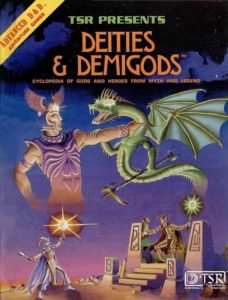DM David has an interesting new article about that particular time period back in the 1990s.


1994: TSR Declares War on the Internet’s D&D Fans
Nowadays Shannon Appelcline writes about the history of the roleplaying game business and writes most of the product histories on the Dungeon Masters Guild. In 1994, he administered a computer at B…
dmdavid.com

